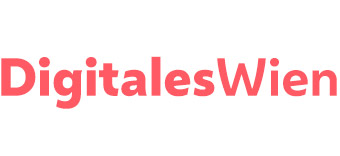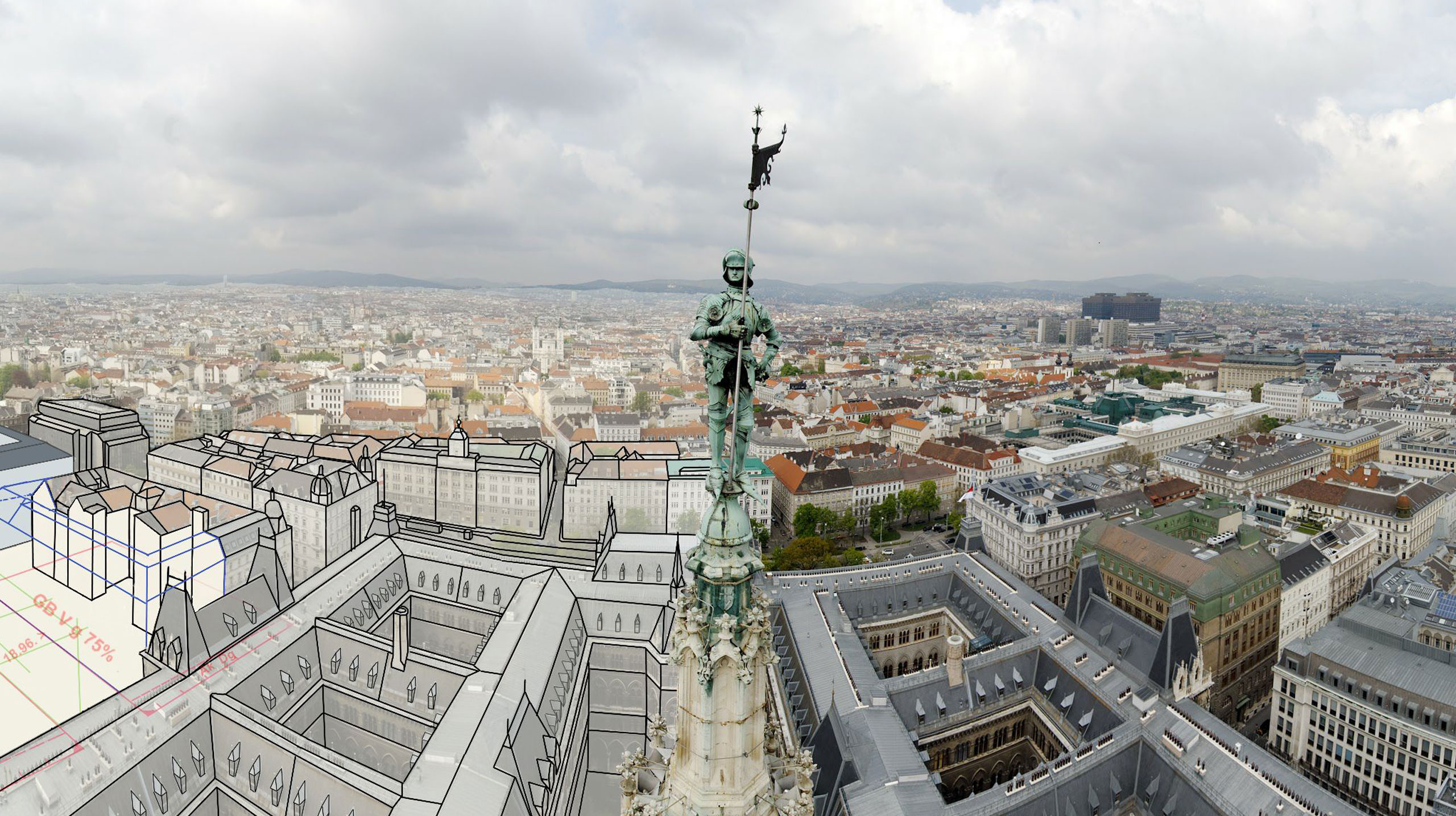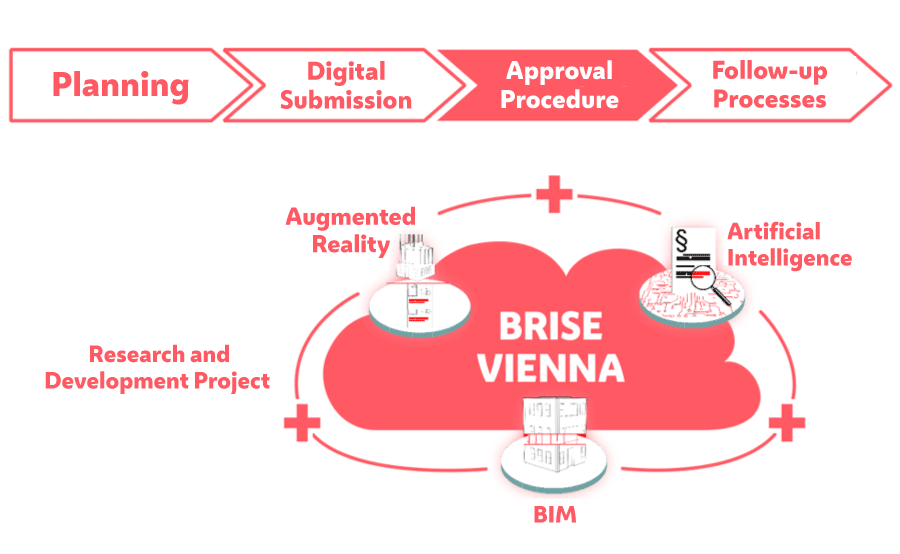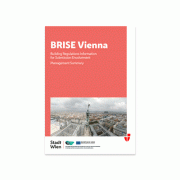BRISE – the future of public administration
The BRISE digitisation project set out to improve public administration in the City of Vienna and thus the lives of the population. In a “city of short distances” like Vienna, it allows for faster and more efficient administrative processing. Digital and analogous participation processes guarantee democratic, service-oriented progress towards a modern, sustainable city administration.
BRISE has set new standards for submission and permit procedures in building and construction. The project results can be transferred to other fields of administration and other European cities.
The research and development project BRISE received about EUR 4.8 million in funding from the EU initiative “Urban Innovative Actions”. Expert partners from the fields of science (civil engineers and computer scientists at TU Wien), public administration (City of Vienna), BIM (tbw-ODE) and from the local Chamber of Civil Engineers (for Vienna, Lower Austria and Burgenland) worked in close cooperation to implement the project by March 2023.
BRISE – digital construction processes
BRISE (Building Regulations Information for Submission Envolvement) generally stands for smart, efficient public administration. Based on administrative procedures in building and construction as an example for smart digital administration, the City of Vienna has taken on a pioneering role in Europe.
Innovative technologies help digitise building permit applications and procedures, making the entire process faster, more efficient, more transparent and less costly. The digital processes developed for BRISE can be transferred directly to other fields of public administration.
BRISE – building in a growing city
Vienna is a major international city whose total population has grown by around 300,000 people over the past 10 years. Population growth has also led to an increase in construction activity. Currently the Vienna City Administration processes around 13,000 building applications every year.
The City of Vienna makes a point of protecting and preserving the large stock of older buildings in the city, while at the same time setting high social, architectural and ecological standards for new construction projects. Submission processes have become increasingly complex. As a result, processing times for conventional pen-and-paper building applications have increased, taking up to a year by now.






